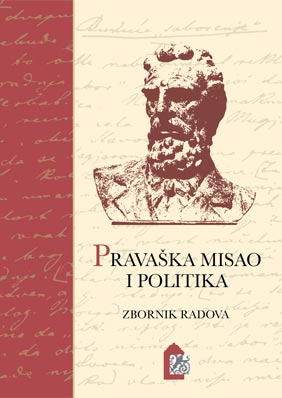Hrvatski nacionalisti i djelo Ante Starčevića od atentata u Marseilleu do uspostave Nezavisne Države Hrvatske (1934. - 1941.)
Croatian nationalists and the legacy of Ante Starčević : from the assassination in Marseilles to the formation of the Independent State Croatia (1934-1941)
Author(s): Mario Jareb
Subject(s): Politics / Political Sciences, Politics, History, Political history, Recent History (1900 till today), Interwar Period (1920 - 1939), WW II and following years (1940 - 1949)
Published by: Hrvatski institut za povijest
Summary/Abstract: Croatian nationalists during the second half of the 1930s normally presented themselves as followers of Starčević’s thought. Nevertheless, important differences existed among them, thus even public interpretations of Starčevićism were quite different. From 1936 on, a large number of nationalists gathered in the Croatian cultural- educational and cooperative society “Ante Starčević” in Zagreb. This society organized several lectures, whose aim was the affirmation of Starčević’s ideas in the Croatian public sphere. While the majority of the membership accepted Starčević exclusively as the promoter of the idea of a free and independent Croatian state, others, a minority, attempted to tie his ideas to the contemporary totalitarian ideas current in Hitler’s Germany. In this regard, Dr. S. Buć and his circle of likeminded followers stand out. They soon came into conflict with the majority of Croatian nationalists. In this period, the group supporting A. Pavelić (lawyer) and his Ustaša organization are the best particular example. They likewise relied on Starčević’s ideas, interpreting Ustašism as their practical application of them. Nationalistically oriented students also supported the ideas of Starčević. The majority were organized in the cultural and academic society “August Šenoa.”
Generally, it can be said that, Croatian nationalists in the period from 1934 to the formation of the Independent State of Croatia in 1941 showed their inclination to the ideas of Starčević. Yet the particular affiliation of specific political groupings was overlooked as was the lack of unity in terms of the interpretation of the content of Starčević’s ideas.
Book: Pravaška misao i politika
- Page Range: 277-298
- Page Count: 22
- Publication Year: 2007
- Language: Croatian
- Content File-PDF

